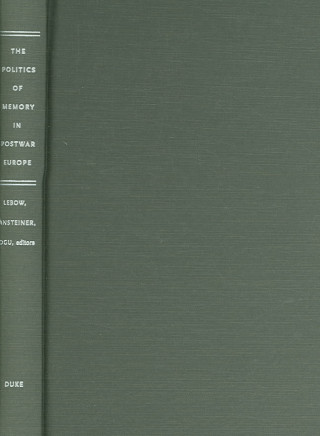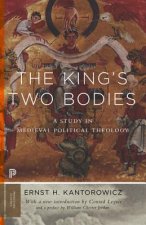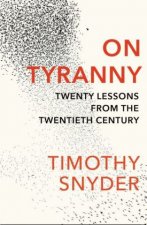
Code: 04461085
Politics of Memory in Postwar Europe
by Richard Ned Lebow
For sixty years, different groups in Europe have asserted interpretations of World War II and their respective countries' roles in it consistent with their own political and psychological needs. The conflict over the past has play ... more
- Language:
 English
English - Binding: Hardback
- Number of pages: 384
Publisher: Duke University Press, 2006
- More about this

125.75 €
RRP: 139.70 €
You save 13.95 €

Low in stock at our supplier
Shipping in 14 - 18 days
Potřebujete více kusů?Máte-li zájem o více kusů, prověřte, prosím, nejprve dostupnost titulu na naši zákaznické podpoře.
Add to wishlist
You might also like
-

Minor in Possession
10.85 € -4 % -

J. Wendell MacLeod
36.34 € -

Bolt of Fate
23.75 € -

Honda MBX/MTX125 & MTX200 (83 - 93)
45.05 € -10 % -

Wo die Liebe hinfliegt
15.76 € -4 % -

O'Shea's Guide to Spain and Portugal
76.59 €
Give this book as a present today
- Order book and choose Gift Order.
- We will send you book gift voucher at once. You can give it out to anyone.
- Book will be send to donee, nothing more to care about.
More about Politics of Memory in Postwar Europe
You get 311 loyalty points
 Book synopsis
Book synopsis
For sixty years, different groups in Europe have asserted interpretations of World War II and their respective countries' roles in it consistent with their own political and psychological needs. The conflict over the past has played out in diverse arenas, including film, memoirs, court cases, and textbooks. It has had profound implications for democratization and relations among neighbouring countries. This collection provides a comparative case study of how, since 1945, memories of the Second World War have been constructed and revised in seven European nations: France, Germany, Austria, Switzerland, Poland, Italy, and the USSR (Russia). The contributors include scholars of history, literature, political science, psychology, and sociology. Country by country, they bring the specifics of each nation's post-war memories to the fore in essays commissioned especially for this volume. Their use of similar analytical categories facilitates comparisons. The collection includes an extensive introduction reflecting on the significance of Europeans' memories of the Second World War and a conclusion that analyzes the implications of the contributors' findings for memory studies. These two pieces tease out some of the findings common to all seven countries: for instance, in each nation, the decade and a half between the late 1960s and the mid-1980s was the period of most profound change in the politics of memory. At the same time, the volume demonstrates that Europeans understand the Second World War primarily through national frames of reference, which are surprisingly varied. Memories of the Second World War have important ramifications for the democratization of Central and Eastern Europe and the consolidation of the European Union. This volume clarifies how those memories are formed and institutionalized.
 Book details
Book details
Book category Knihy po anglicky Humanities History History: earliest times to present day
125.75 €
- Full title: Politics of Memory in Postwar Europe
- Author: Richard Ned Lebow
- Language:
 English
English - Binding: Hardback
- Number of pages: 384
- EAN: 9780822338024
- ISBN: 0822338025
- ID: 04461085
- Publisher: Duke University Press
- Weight: 689 g
- Dimensions: 238 × 165 × 29 mm
- Date of publishing: 20. September 2006
Trending among others
-

Learn to Read Ancient Sumerian
32.15 € -

Russian Journal
14.43 € -23 % -

King's Two Bodies
27.13 € -12 % -

Heart of Europe
20.88 € -23 % -

Armies of Castile and Aragon 1370-1516
17.91 € -4 % -

One Hell of a Gamble
26.82 € -19 % -

Rise and Fall of Ancient Egypt
18.73 € -23 % -

Guns, Germs, and Steel
16.78 € -

The Origins of Totalitarianism
10.44 € -20 % -

Illustrated Encyclopedia of Uniforms of World War I
22.01 € -23 % -

On Tyranny
9.82 € -24 % -

Homo Ludens
11.97 € -

Tuesdays With Morrie
10.23 € -24 % -

History of the Decline and Fall of the Roman Empire
14.43 € -23 % -

King Leopold's Ghost
13.30 € -16 % -

Meditations
9.10 € -19 % -

Streams of Gold, Rivers of Blood
31.74 € -7 % -

Travels of Ibn Battutah
11.05 € -30 % -

Augustus
16.58 € -23 % -

Age Of Capital
16.58 € -23 % -

Egyptian Book of the Dead: The Book of Going Forth by Day : The Complete Papyrus of Ani Featuring Integrated Text and Full-Color Images (History ... M
32.35 € -10 % -

Deng Xiaoping and the Transformation of China
32.76 € -

Age Of Extremes
17.19 € -21 % -

John Skylitzes: A Synopsis of Byzantine History, 811-1057
38.09 € -17 % -

Arms and Armour of Late Medieval Europe
11.15 € -23 % -

Alexander the Great
16.58 € -22 % -

End of Days
8.39 € -19 % -

Shake Hands With The Devil
14.22 € -16 % -

Complete Roman Army
22.01 € -23 % -

Distant Mirror
14.43 € -23 % -

Fall of the Roman Empire
26 € -

Fifties
19.34 € -17 % -

After the Ice
18.73 € -23 % -

Histories
5.93 € -21 % -

Savage Continent
16.58 € -23 % -

Oxford IB Diploma Programme: The Cold War: Superpower Tensions and Rivalries Course Companion
51.71 € -

Age Of Empire
16.58 € -23 % -

Pompeii
12.28 € -23 % -

Life in a Cave
7.16 € -4 % -

Oxford Illustrated History of Prehistoric Europe
39.72 € -10 % -

On the Ocean
40.03 € -7 % -

Flowers of Battle The Complete Martial Works of Fiore dei Liberi Vol 1
141.31 € -

On Ancient Warfare
43.41 € -1 % -

Access to History for the IB Diploma: Causes and effects of 20th-century wars Second Edition
38.19 € -

Safe Area Gorazde
20.88 € -23 % -

Yoga Body
18.73 € -11 % -

Fear and Loathing on the Campaign Trail '72
14.43 € -23 % -

Fall of Carthage
16.58 € -23 % -

Hidden Figures
10.95 € -24 %
Osobný odber Bratislava a 2642 dalších
Copyright ©2008-24 najlacnejsie-knihy.sk Všetky práva vyhradenéSúkromieCookies


 21 miliónov titulov
21 miliónov titulov Vrátenie do mesiaca
Vrátenie do mesiaca 02/210 210 99 (8-15.30h)
02/210 210 99 (8-15.30h)